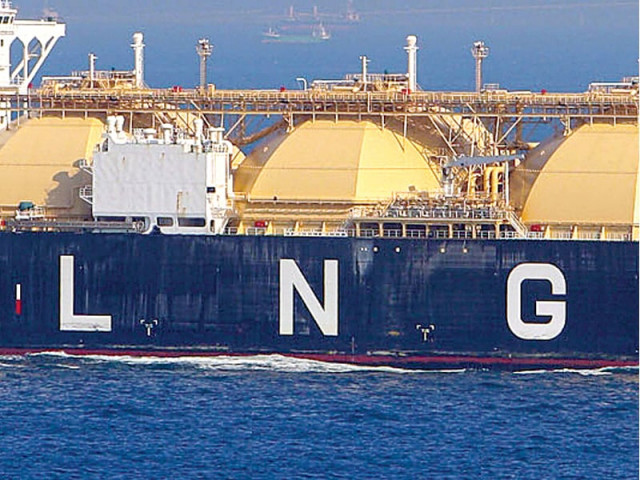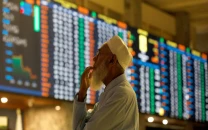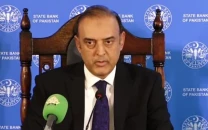Private sector seeks gas allocation
Says instead of curtailing supplies, surplus energy be provided to them

The private sector has urged the government to allocate surplus indigenous gas to private shippers as supplies are being curtailed due to liquefied natural gas (LNG) imports.
The private sector is reluctant to take LNG deliveries, which has created a glut in the market. Several LNG cargoes have been diverted so far due to low demand.
Owing to LNG imports, the oil and gas exploration companies have been forced to curtail the local gas supply by 300 to 400 million cubic feet per day (mmcfd). Previously, the exploration firms had approached the prime minister, saying they were facing a loss of Rs12 billion due to the curtailment of supplies.
Keeping that in view, the government had increased the allocation of newly discovered gas to third parties from 10% to 35% to help improve the cash flow of those companies. Though this policy had been approved earlier in 2025, the exploration firms did not allocate gas to third parties, which disappointed the private shippers.
Now, the private shippers have sought the allocation of gas being curtailed due to LNG imports. They are buying indigenous gas at prices higher than LNG.
While the exploration companies have welcomed the increase in gas allocation from 10% to 35%, some powerful lobbies are now reportedly trying to delay its implementation in a bid to receive gas supply themselves without getting a licence from the regulator.
Background discussions with different stakeholders revealed that the exploration companies were facing cash flow problems due to circular debt, therefore, they had welcomed the decision of allocating gas to third parties, which could improve the cash flow for new projects.
Sui Northern Gas Pipelines Limited (SNGPL) has persistently asked exploration and production (E&P) companies to curtail gas production. In response, the producers have voiced concerns, saying curtailments damaged their wells and caused losses of billions of rupees.
Simultaneously, SNGPL has repeatedly tried to reschedule LNG cargoes from Qatar. Additionally, Eni cargoes are being sold in the open market instead of being routed through the pipeline.
While SNGPL treats the indigenous gas as surplus, the consumers across all categories are enduring severe outages. This has pushed the market towards alternative energy sources.
Universal Gas Distribution Company (UGDC), a private shipper, has emphasised that instead of curtailing indigenous gas supplies, these should be allocated to private shippers like UGDC. "This will promote economic activity, increase output and help stabilise tariffs," it said.
The throughput has declined significantly from 1,230 mmcfd in financial year 2020-21 to 693 mmcfd in 2025-26, reflecting a 32% reduction. However, the tariff continues to be calculated based on the overall actual throughput. The tariff based on the actual throughput rewards inefficiency and discourages network optimisation.
The private sector says that due to the declining output and rising fixed costs, the capacity charges have increased from Rs92 per million cubic feet (mcf) in 2019-20 to Rs282/mcf in 2025-26 – a staggering 207% hike. This increase is termed unjustifiable, especially since end-consumer prices remain fixed. Such distortion undermines fair pricing.
The private shippers say that the tariff should be computed based on the gross system capacity rather than the actual throughput and it should be fixed for at least 10 years. This will force the public gas utility to maximise the use of its network.
Alternatively, a minimum throughput threshold and a cap on fixed charges should be introduced to prevent any abnormal spike in the fixed charges. Qatar cargo rescheduling should be included in the system throughput, they say.
At present, SNGPL is seeking an increase in the transportation tariff, which the private sector has strongly opposed for financial years 2024-25 and 2025-26. The private sector believes that any increase in the transportation tariff will push them out of the market as they are already operating in a high-risk, competitive environment.
It has urged the regulator to conduct an in-depth efficiency and performance audit of SNGPL before allowing any tariff revision. It also says that the unaccounted-for-gas (UFG) benchmark, set by the Oil and Gas Regulatory Authority (Ogra), should be applied to all stakeholders connected to the network.
The private shippers have asked Ogra to engage a law firm for conducting a review of the framework governing the application of the UFG benchmark.
They have also called for establishing separate accounting systems for transmission, distribution and sales to enhance transparency and efficiency. They have proposed the elimination of asset-based return formula by replacing it with a fixed margin for the gas utilities.






















COMMENTS
Comments are moderated and generally will be posted if they are on-topic and not abusive.
For more information, please see our Comments FAQ